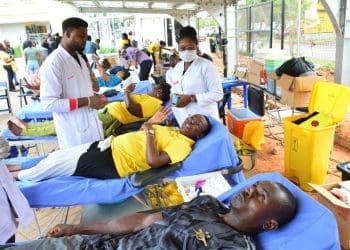The Bank of Ghana (BoG) is preparing to issue a sweeping new directive aimed at slashing high levels of non-performing loans (NPLs) that have plagued the country’s banking sector.
The move, which forms part of a broader five-part regulatory reform agenda, seeks to enforce sound lending practices, protect financial stability, and restore market confidence.
Mandatory write-Offs
As part of the directive, banks and other regulated financial institutions will be required to write off fully provisioned loans deemed to have no realistic recovery prospects.
However, write-offs related to loans involving related parties are explicitly excluded from this requirement.
The Central Bank’s decision reflects a growing concern that many financial institutions are maintaining unrealistic asset valuations by carrying bad loans on their books—often with no prospect of repayment.
The BoG believes that compelling institutions to clean up their balance sheets is essential to re-establishing trust in their financial health.
NPLs must be cut to 10% by end of 2026
The directive introduces a binding target: all banks must reduce their gross non-performing loans to no more than 10% of their total loan portfolio by December 2026.
This cap is designed to drive stricter credit risk assessment, improve underwriting standards, and minimise the long-term drag of bad loans on the economy.
While the move may pressure some institutions to accelerate recoveries or revise credit operations, BoG officials stress that this is a non-negotiable requirement aimed at fostering financial resilience.
Tougher rules on loan restructuring
In a bid to prevent window dressing of distressed assets, the Central Bank is tightening rules on loan restructuring.
Under the new measures, banks will only be allowed to reclassify a restructured loan as “performing” after there is sustained evidence of repayment.
This is to curb the practice where banks reclassify problematic loans prematurely, often to meet regulatory requirements or present a healthier financial position than actually exists.
The new standard seeks to ensure that restructurings reflect genuine recovery, not accounting gimmicks.
Enforcement of collateral recovery
The directive also emphasises the timely and effective recovery of collateral, especially for overdue and defaulted facilities.
Banks will now be required to demonstrate a structured approach to enforcing collateral claims, with an expectation that protracted delays and weak legal follow-through will no longer be tolerated.
This component of the directive aligns with BoG’s efforts to strengthen asset-backed lending practices and reduce the time and cost associated with collateral recovery in the Ghanaian market.
Risk governance under the microscope
Beyond asset clean-up, the Central Bank is calling for a renewed focus on credit risk governance.
Financial institutions will be expected not just to have credit risk frameworks on paper but to provide proof that they are effective in practice.
This includes documentation of risk oversight by boards, enforcement mechanisms, and feedback loops to adjust lending practices where necessary.
BoG insiders say that many recent credit failings have been the result of weak internal controls, rubber-stamp credit approvals, and poor monitoring—issues the regulator now wants banks to confront head-on.
Monthly NPL reporting and public transparency
To ensure closer supervision and investor awareness, the new regime introduces enhanced reporting obligations.
Banks must submit monthly NPL data to the BoG and publish sectoral breakdowns of their NPL portfolios in audited annual statements.
Most significantly, the directive will require banks to name and publicly disclose willful defaulters—borrowers who have the means to repay but choose not to.
These names must be listed in audited financial reports and will be shared with financial oversight bodies, effectively cutting off access to further credit within the regulated sector.
Public Naming of Willful Defaulters
According to the BoG, willful defaulters pose a unique threat to credit markets, distorting outcomes, weakening institutional credibility, and undermining responsible borrowing behavior. Publicly naming them, the regulator argues, will sharpen focus on systemic risk, improve due diligence by creditors, and send a clear message that strategic default will no longer be tolerated.
This “naming and shaming” approach is expected to stir debate in the industry, with some lauding it as necessary and overdue, while others may raise concerns about due process and reputational risk.
Reform agenda enters high gear
The NPL directive represents the fourth pillar in a wider reform effort initiated by the Bank of Ghana, targeting five key regulatory domains.
Earlier measures included improved reserve management for foreign and local currency deposits, digital lending guidelines, and transparency in cross-currency card transaction fees.
BoG reiterated its commitment to a fairer, safer, and more disciplined banking system.
Industry stakeholders have been advised to prepare for compliance and to take urgent steps in reviewing their credit books, risk frameworks, and governance structures ahead of the directive’s implementation.













